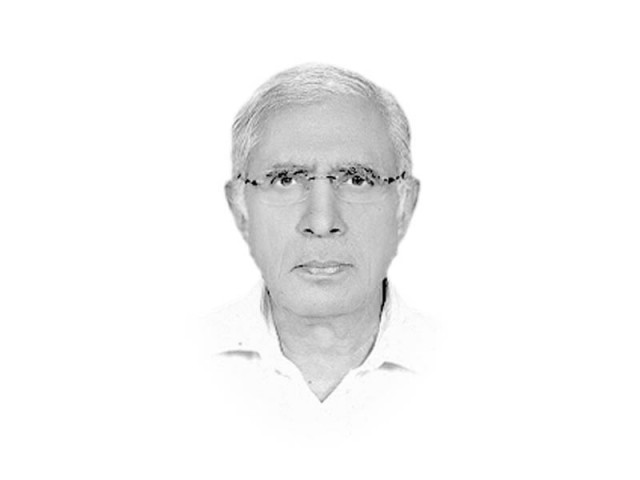Pakistan — a soft state?
Today we have many more non-state actors killing and maiming Pakistanis in Islam's name than there were 10 years ago.

The writer is Executive Editor of The Express Tribune
Another double take was in order when he claimed that the Pakistan-Afghanistan border had remained open all these years because our Pashtuns had wanted it to remain so. Though himself a Pashtun, he said he disagreed with this position of his ethnic brethren, as according to him, the large unmanned portions of the border only facilitated criminals and anti-Pakistan elements. General (retd) Ehsanul Haq, who was speaking at a SAFMA seminar last week on how the Isaf withdrawal from Afghanistan would affect Pakistan, said he had held the same opinion even when he was in service. That his opinion did not prevail over that of the institution does not prove anything, one way or the other. The subject requires a deeper analysis, anyway. But let us see what the Amnesty International report on drones says about those who mount jihad against US troops stationed in a foreign country and also attack our own troops and innocent Pakistanis from sanctuaries located on this side of the Durand Line:
“Three main armed group networks operate in North Waziristan, although there is significant overlap in their membership and they are known to cooperate with each other: the Afghan Taliban, which carries out military operations against US, Afghan and allied forces in Afghanistan and occasionally against Pakistani forces; the Pakistani Taliban, which seeks to overthrow the Pakistani state and is responsible for attacks on state forces in North Waziristan and others across Pakistan; and al Qaeda-linked groups, consisting of local and foreign fighters, which plan and promote attacks globally. All three of these groups have been targeted by US drone strikes.
“Armed groups based in North Waziristan are responsible for indiscriminate attacks and direct attacks on military forces and the general public that have killed and maimed thousands of people in Pakistan and Afghanistan over the last decade, some of which constitute war crimes. They have regularly carried out suicide and IED (improvised explosive device) bombings, targeting marketplaces, mosques, schools and other populated places that either indiscriminately or deliberately caused scores of civilian deaths. The Pakistani Taliban and al Qaeda-linked groups also abduct and kill individuals accused of spying on behalf of the USA and Pakistan, often employing quasi-judicial proceedings that are arbitrary and lack even the most elementary components of a fair trial. Seeking to maintain and expand their control of the region, these groups have also killed hundreds of ordinary residents in North Waziristan, including tribal elders who are the key link between the Pakistani state and local communities … There is no doubt, however, that armed groups are able to perpetrate abuses with impunity and significant portions of North Waziristan are under their effective control.”
Answering a question, during the Q&A session, the former general implied that the army has realised the danger posed by these non-state actors to our sovereignty, but getting rid of these organisations, he believed, required a gradual approach rather than a quick uprooting as, according to him, that would cause these groups to splinter into numerous factions posing an even more serious challenge to our integrity. But then, the gradual approach seems to have failed to yield the desired results. In fact today, we have many more non-state actors, killing and maiming Pakistanis in the name of Islam than there were about 10 years ago.
Tailpiece: PTI detractors should stop accusing it of being a Taliban sympathiser simply because it is accusing the US of droning our sovereignty, and by the same token, the PTI should stop accusing those who accuse the Taliban of challenging our statehood, of being US boot-lickers. No one in this country likes what the drones and the Taliban are doing to our sovereignty.
Published in The Express Tribune, December 4th, 2013.
Like Opinion & Editorial on Facebook, follow @ETOpEd on Twitter to receive all updates on all our daily pieces.















COMMENTS
Comments are moderated and generally will be posted if they are on-topic and not abusive.
For more information, please see our Comments FAQ